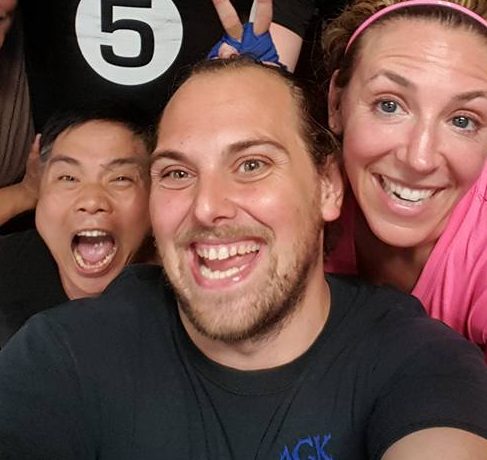If your child bursts into tears over a lost pencil, a sibling grabbing a toy, or a small mistake on their homework, you might wonder why such seemingly minor incidents provoke such big emotions. You may have heard advice like, “They just need to toughen up,” or “It’s not a big deal,” but the truth is that for children aged 7-9, emotional regulation is still very much a developing skill. What seems like a minor issue to an adult can feel overwhelming to a child whose brain is still learning how to process frustration, disappointment, and stress.
The Developing Brain & Big Emotions
At this stage of childhood, the brain is undergoing significant growth, particularly in areas responsible for emotional regulation.
Why Small Problems Feel So Big
The prefrontal cortex, which helps with impulse control, reasoning, and problem-solving, is not yet fully developed. Meanwhile, the limbic system, particularly the amygdala—the part of the brain responsible for processing emotions—remains highly reactive. This means that children often experience emotions in their rawest form before they have the tools to regulate and express them in more measured ways.
Why Kids Can’t “Just Get Over It”
When a child encounters frustration, their brain might interpret it as a much bigger issue than an adult would. Their emotional response isn’t a sign of weakness or an attempt to manipulate; it’s a genuine reaction based on where they are in their cognitive development. With the right guidance, they can learn how to regulate their emotions more effectively, but expecting them to “just get over it” ignores the biological processes at play.
Understanding Emotional Triggers:
How the Brain Connects Emotion & Reasoning
Children in this age group often have strong emotional reactions because their brains are still forming connections between emotions and logical reasoning. Emotional triggers—such as disappointment, embarrassment, or feeling misunderstood—can lead to tears or frustration because children don’t yet have the full ability to process these emotions rationally.
Why Small Setbacks Can Feel Like Catastrophes
A misplaced toy or an unexpected change in plans might feel like a catastrophe because kids lack the coping mechanisms to handle frustration. If a child has had a long day at school, is feeling overstimulated, or is already managing some inner frustration, a small setback might be the tipping point that causes an emotional overflow. Recognizing these patterns can help parents approach their child’s emotions with understanding rather than frustration.
The Role of Environment & Stress:
How Adult Reactions Influence Emotional Growth
While brain development plays a significant role in emotional regulation, external factors also contribute. A child’s environment, including how adults around them react to emotions, can either support or hinder their ability to manage big feelings. If a child is frequently told to “stop crying” or “calm down,” they may start to internalize the idea that emotions are something to suppress rather than navigate.
Why Stress & Overstimulation Matter
School, extracurricular activities, and social interactions all place demands on a child’s mental and emotional energy. By the time they get home, their ability to cope with even small frustrations might be depleted. This is why some children appear to have more frequent meltdowns in the evening—it’s not defiance, but rather a sign that their nervous system is overwhelmed.
Teaching Emotional Regulation in a Supportive Way:
The Power of Acknowledging Feelings
At Vision Martial Arts, we see firsthand how children benefit from structured environments that teach self-regulation and resilience. Through programs like Core SKILLZ, we help children recognize their emotions, develop coping strategies, and build confidence in their ability to handle challenges.
At home, creating a supportive approach to emotional regulation involves acknowledging your child’s feelings rather than dismissing them. Instead of saying, “It’s just a small thing,” try rephrasing your response to validate their emotions: “I see that you’re really upset about this. Let’s take a deep breath and talk about it together.” This helps children recognize that their feelings are valid while also guiding them toward more constructive ways of handling their frustration.
Movement & Emotional Control:
Why Physical Activity Helps Kids Manage Emotions
Physical activity is a powerful tool for emotional regulation. Studies have shown that movement helps regulate the nervous system by reducing stress hormones and increasing the production of mood-boosting neurotransmitters. This is why children who engage in physical activities, such as martial arts, often display better emotional control and resilience.
How Martial Arts Supports Emotional Growth
At Vision Martial Arts, we incorporate movement into emotional development by teaching children how to channel frustration into focused physical activity. Whether it’s a deep breathing exercise before attempting a difficult task or engaging in controlled movements to release built-up tension, these strategies help children regulate their emotions in real time. Over time, they learn to associate movement with emotional control, allowing them to access these tools even outside of class.
Building Emotional Strength in Daily Life:
Encouraging Problem-Solving & Coping Skills
Helping children develop emotional regulation is not about eliminating big feelings but about equipping them with the tools to manage them effectively. Small, daily interactions can have a significant impact. When a child experiences frustration, guiding them through problem-solving rather than immediately fixing the issue for them helps build resilience. Asking open-ended questions like, “What do you think we can do to make this better?” encourages critical thinking and self-soothing behaviors.
Why Parental Modeling Matters
Modeling emotional regulation as an adult is key. Children observe how caregivers handle stress, disappointment, and frustration. If they see adults managing emotions with patience and self-awareness, they are more likely to mirror these behaviors. By consistently demonstrating calmness and problem-solving, parents can help their children internalize these strategies.
Celebrating Progress & Growth:
Why Emotional Development Takes Time
Emotional regulation is a lifelong skill that takes years to develop, and progress won’t always be linear. There will be moments of success and moments of setbacks, but the key is to recognize and celebrate improvement. When a child manages to take a deep breath instead of immediately melting down, or when they verbalize their frustration instead of lashing out, these are important milestones in their growth.
How Martial Arts Reinforces Emotional Resilience
At Vision Martial Arts, we encourage children to set goals for both their physical and emotional development. Just as they work toward mastering new techniques in class, they can also set personal goals for handling emotions in a healthier way. Encouraging a growth mindset—where setbacks are viewed as learning opportunities rather than failures—empowers children to see emotional regulation as an ongoing skill they can strengthen over time.
Helping Children Build Emotional Strength for the Future
If your child frequently cries over “little things,” it’s important to remember that these reactions are not about being overly sensitive or dramatic. They are part of a natural developmental process where emotions feel big because the brain is still learning how to process them effectively. By providing patience, structure, and guidance, parents and caregivers can help children navigate these feelings and build strong emotional regulation skills that will serve them well into adolescence and beyond.
Through movement, mindfulness, and emotional awareness, children can learn to handle life’s ups and downs with greater confidence. Whether it’s on the mat at Vision Martial Arts or in daily life, equipping them with the right tools today will help them grow into emotionally resilient individuals who can face challenges with strength and self-assurance.
To start your child’s martial arts journey and turbocharger their development, click the button below to schedule their first class:
Vision Martial Arts
218 Medford Ave
Patchogue, NY 11772
631-707-5610

Author: Michael A Evans
Michael’s journey in martial arts began in 1985, and he now proudly holds a 6th-degree black sash, mentored by Moises Arocho. As the co-founder of Vision Martial Arts in Patchogue, NY, he not only offers robust martial arts training for adults but is also deeply committed to childhood development. Through martial arts and various movement techniques, he empowers kids and adults to realize their potential and shine. Beyond the martial world, Michael wears the hat of a founder of Forgotten Skillz, and collaborates on the enchanting “Little Laurie Science Stories” book series and the Ninja Née Science Education Program. Educated at the NY College of Health Professions, he brings therapeutic relief to many as the lead massage therapist at Massage LI.

















